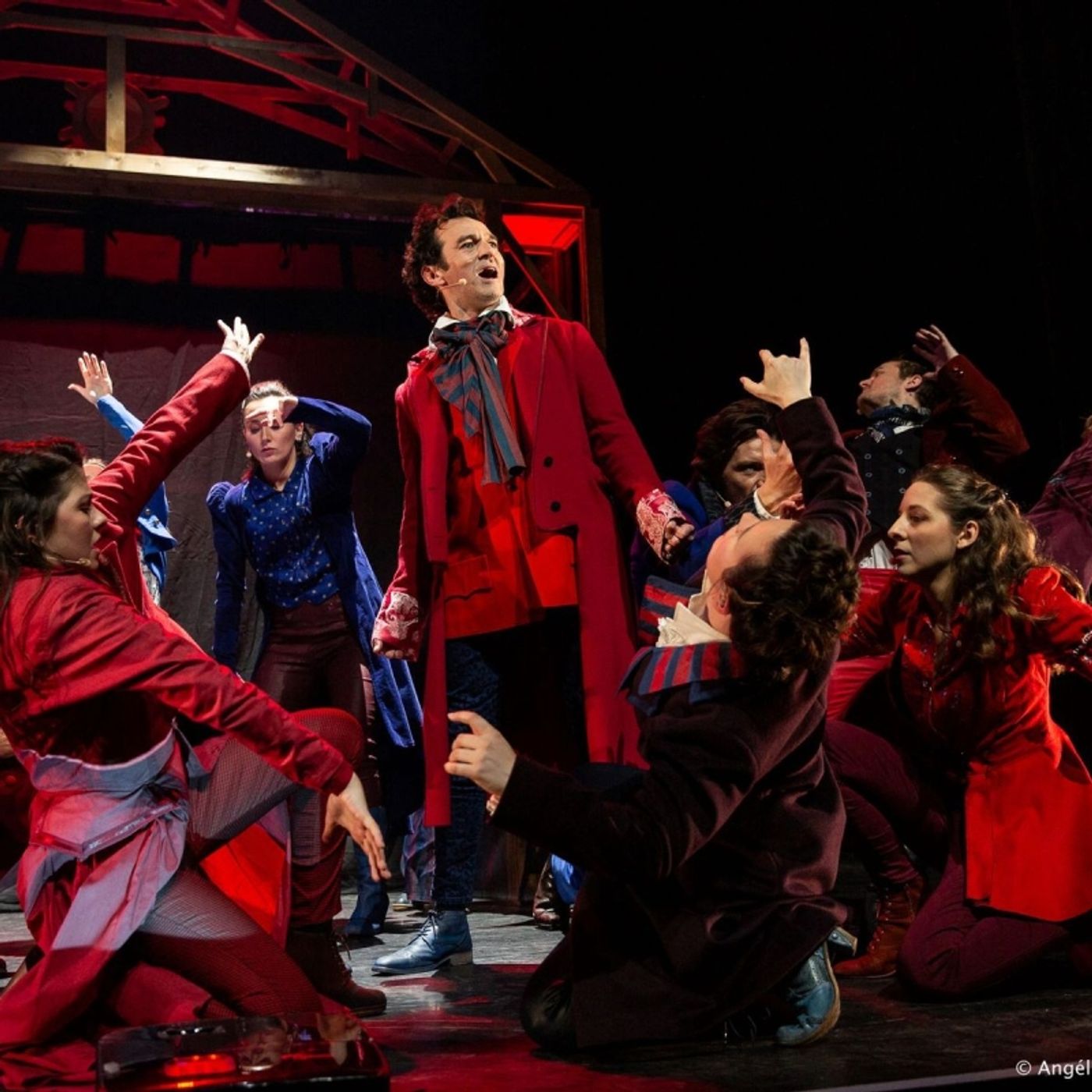Review: LA REVOLUTION FRANÇAISE at Le 13e Art
First Revival of the First Boublil and Shönberg Musical
In Paris, this year's host to the 33rd Olympic Games, we are being treated to the rarely performed first musical—or, as they say in France, “opéra rock” (legitimately so, as the show is sung through without dialogue)—of Alain Boublil and Claude-Michel Schönberg, who subsequently gave us the masterpieces that are Les Misérables and Miss Saigon. Though far inferior to those works, La Révolution Française is still a thrilling journey through one of history’s most tumultuous periods. They, along with Jean-Max Rivière, have created a powerful libretto, and director Ned Grujic (Fame, Hair, Shrek, all in French, among others), with the assistance of Laure-Marie Harant, has crafted a production that is at times grandiose and at others intimate, especially in the riveting guillotine scenes, never more so than when Marie Antoinette, played by Julie Denn, loses her head to “Au Petit Matin” (“Early Morning”), arguably the best song of the score, which is otherwise a little bit too much of a hodgepodge of styles (with the exception of the very same ballad which became “I Dreamed a Dream” in Les Misérables , of course)
, of course)
The choreography by Amélie Foubert is adequate, fitting well with the revolutionary spirit of the show; the costumes by Magali Perrin-Toinin are to the point, transporting the audience back to the 18th century with authenticity and flair; while the wigs crafted by Julie Poulain could have used some blood for realism’s sake! As for the sets by Christophe Simonet (Ateliers Décors), lighting by Alexandre Delabie, sound by Simon Ortega, and the excellent musical direction and arrangments by Raphaël Sanchez, they serve the production's rabble-rousing feel as well.
The cast also delivers: Pierre Étienne and Louis Buisset alternating as Charles Gauthier and Sébastien Duchange as Robespierre are all compelling, while Marion Perronet as Isabelle de Montmorency brings grace and strength to her role; Matthieu Vinel as Louis XVI adds a bit of nuance to the life of the doomed king, while the supporting cast (most of them doubling as musicians), including Lucie Wendremaire, Anne-Flore Roublique, and the multi-talented ensemble, round off the historical tableau quite well.
In an era of one-shots, when composers on Broadway and elsewhere are not given time to nurture their craft like they could in the golden age up to the beginning of this century, it is as exciting to discover the duo of Boulblil and Schöngerg in their early stages today as it was to discover the first works of Sondheim (Saturday Night), Kander & Ebb (Flora, The Red Menace), or Jerry Herman (Milk and Honey) and to witness the wonderous evolution of what came after.
Though far from a materspiece, La Révolution Française is still a must-see for anyone in Paris, not only for its entertainment value but also for its educational, democratic importance. For musical aficionados, it's a chance more than anything else to discover the roots of the global decades-spanning success that is Les Misérables on a live stage.
Reader Reviews
Videos


